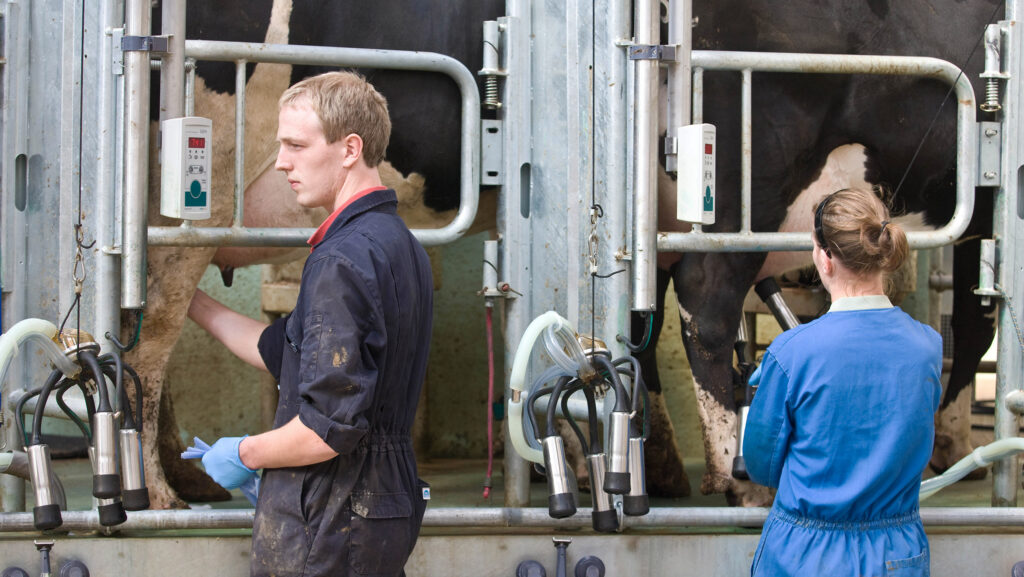Different ways to reward good farm employees
 © Tim Scrivener
© Tim Scrivener Large farming operations with multiple sites have more opportunities to develop their people and retain high performers.
But there is no single successful way to reward good staff, according to New Zealand consultant Sarah Watson of People Management and Development.
See also: What makes a good employer on a dairy farm?
Thinking about incentives for all employees – not just the high flyers – can help motivation and retention, however, and it starts by recognising and appreciating workers as individuals, she says.
Sarah recognises that not every member of staff is born to achieve. Some simply want to turn up every day and work.
“They are like the rock in the team, so reward them with something they value. If it’s not days off, then it could be a Christmas hamper,” she says.
Respect and reward
“You need to know your people well enough to find the reward that is fit for purpose for them. I think this is most important when employing people.
“It’s a big responsibility: that person’s livelihood and wellbeing are in your hands and so you need to treat them as more than a resource.
“Respect them as a person and value them. In return, you get performance and loyalty. It adds a lot of value to your business.”
Financial incentives may be seen as the obvious way to reward or incentivise farm staff. Yet such benefits must be in writing as part of a contract.
An annual agreement (rather than employment contract) linked to staff appraisals that can change year-to-year will be enough, says Sarah.
It must also link to a KPI where the employee has control over costs, so there is an incentive not to spend too much on chasing goals.
“You’ve got to find a way for your business that’s cost-effective to achieve those targets. If it’s not clearly outlined what the reward is, and how it is to be achieved, you risk misunderstandings about expectations,” she explains.
Clear targets
Sarah thinks a good place to start with a financial bonus is to make it monthly, not annual, so employees are rewarded for reaching a target that stays front of mind.
“Be clear and agree what will happen for it to be paid, and give clear reasons for when it will not be paid, otherwise it becomes a disincentive if it’s not done well,” she adds.
Better than a bonus, however, is learning and training on the job. This can range from attending discussion groups, events and conferences, to specialist courses and acquiring skills.
Recognising this as a perk, rather than an everyday item, makes it more valuable. “Think outside the box,” says Sarah.
“It’s a smarter reward for the team, depending on individual goals. Share what’s happening with the team clearly, so that people don’t think you are treating someone differently.
“For instance, you could sort the roster for someone to have more family time, and everyone knows it’s driven by what’s important to that employee. You need appraisals for that.
“In a system with structure, it’s easier to communicate with less chance of problems because it’s written down,” she explains.
Promotions and next steps
In New Zealand, Sarah has worked with farms that set up a structured system for training and developing employees through to farm management, being clear on what the employee has to do to get to the next step of promotion.
“Think about the person’s value to your business. If you have no room for promotion, you can give a pay rise.
“Or, if you have someone who is driven to progress, support them to find their next best step. Prepare to grow people who end up leaving,” she says.
Investing in high performers who then leave is a common fear for dairy farmers, but Sarah does not see this as a problem. Instead, it is turned into an asset because the farm is viewed as one that supports training and growing young people.
“You become an employer of choice,” she points out. “Conversely, if you don’t train people, what happens if they stay?”
